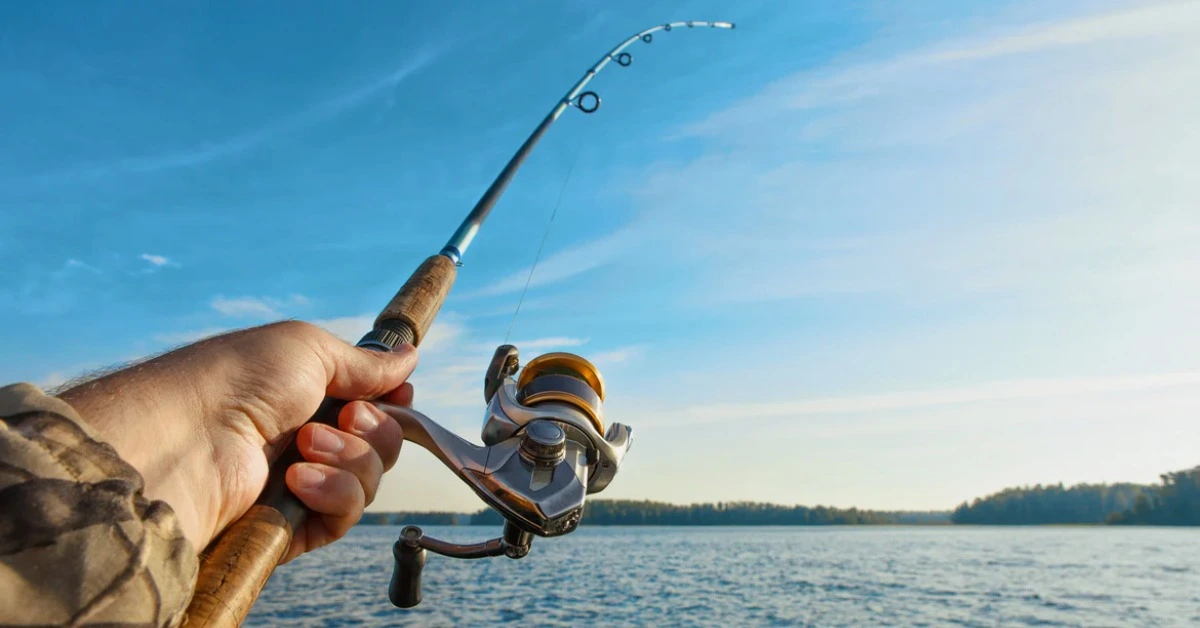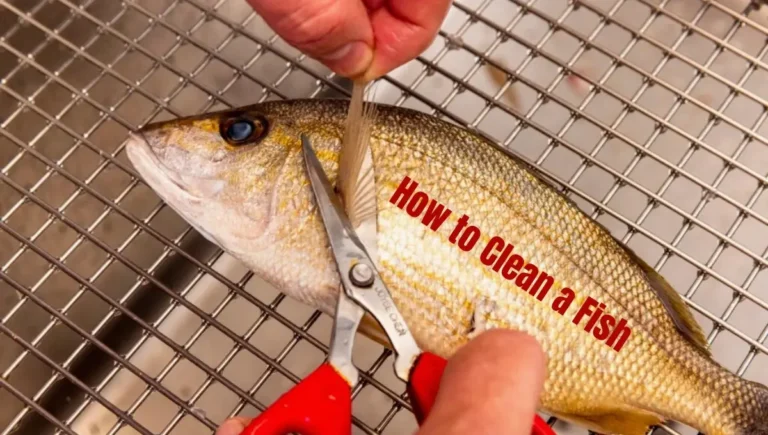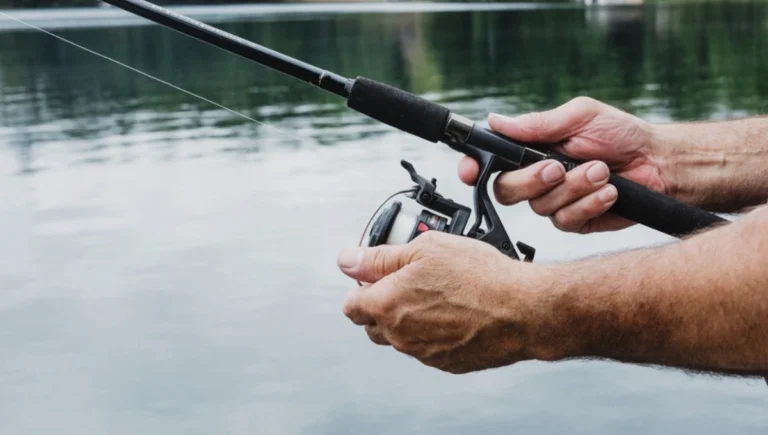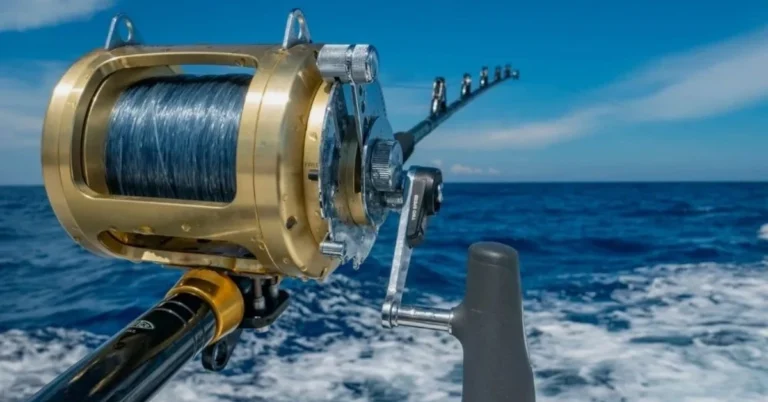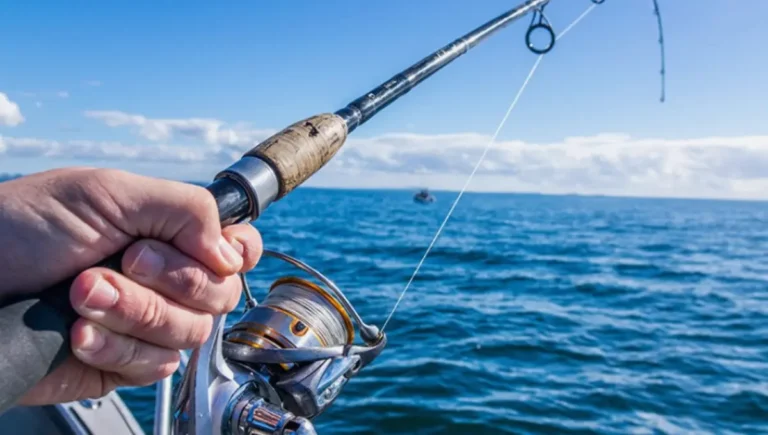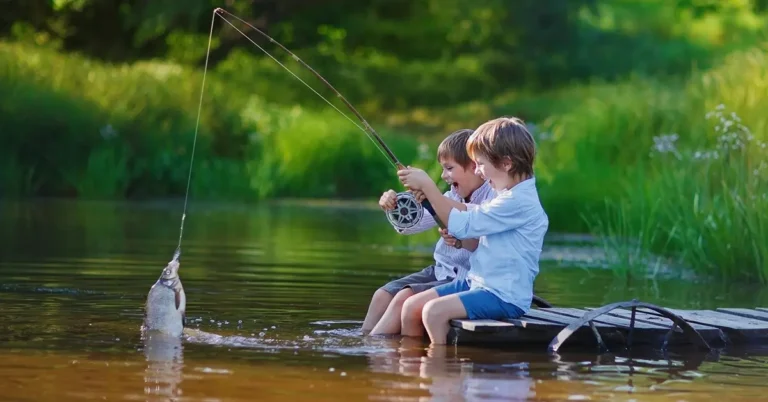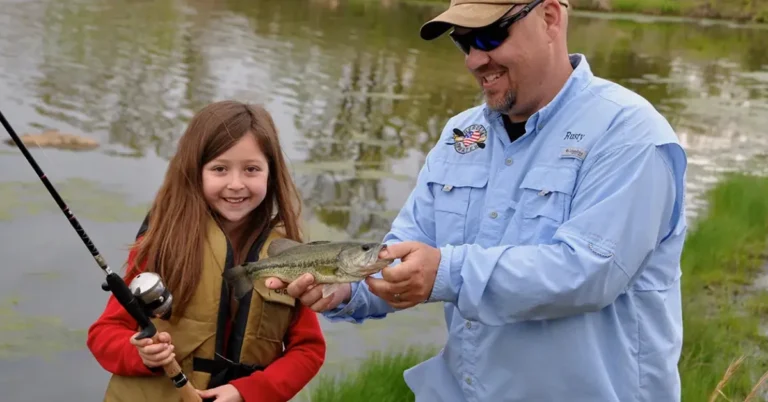Fishing Basics – Everything A Beginner Should Know About Fishing
Fishing is a great way to find food for your family. The most important things to learn when starting are getting a fishing license, choosing the right gear, and knowing good spots and times. For gear, pick rods, reels, bait, and tackle suitable for the fish in your area.
Popular baits are worms or artificial lures. Find lakes, rivers, or coastlines near you that fish are likely to inhabit. Mornings and evenings are usually the best times to fish as that is when many fish are most active. With practice, skills like casting techniques and identifying bites will come. Be patient and before long you’ll learn to catch fish reliably to feed your loved ones.
Also Read: 10 Tips For Fishing To Help You Fish Better
The First Thing You’ll Need – A Fishing License
Don’t forget about the fishing license! It’s like a permission slip to fish legally. Back in the day, you could fish anywhere, but now you need this plastic card to avoid trouble. You might be lucky and not need one, but most likely, you do. Just ask your local tackle shop to be sure.
If you need it, grab it along with your gear. Fishing licenses aren’t too expensive. You can get an annual one for $30-150 or a one-day pass for less than $20. If you plan to fish a lot, go for the annual pass – it’s a better deal in the long run.
Introduction To The Gear
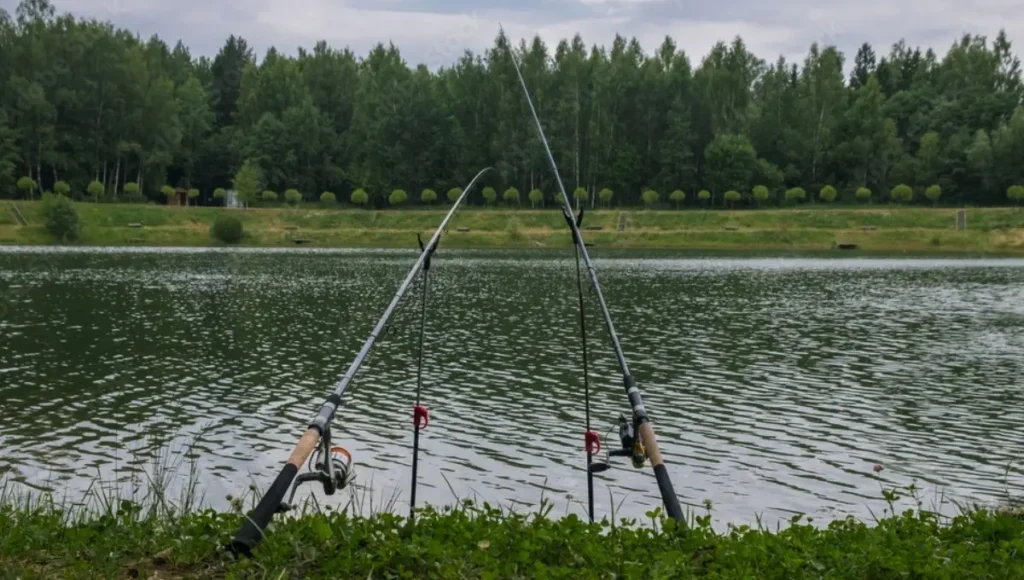
Fishing might seem simple: cast, reel, catch. But without the right gear, it’s tough. Here’s what you need:
But wait, it’s not just about having these things. Each piece has lots of options, and choosing the wrong one can mess up your fishing trip. It’s like putting the wrong parts in your car – it might work, but not as well.
For example, using any rod and line might let you fish, but having the right ones for your height and fishing style makes it easier and more comfortable.
Finding A Fishing Spot
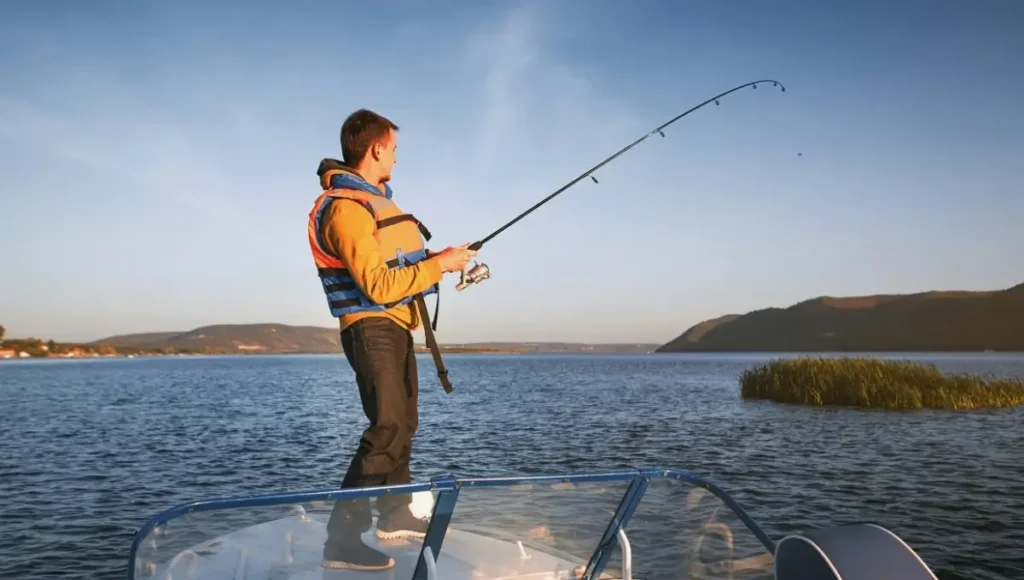
Once you’ve got your gear ready, the next step is finding a good fishing spot. If there are no fish where you fish, you won’t catch any – even with the best gear. But don’t worry, fish are everywhere!
There are two main types of fishing: freshwater and saltwater.
Freshwater fishing happens in ponds, streams, rivers, lakes, and reservoirs. Saltwater fishing is in tidal inlets, marshes, saltwater streams, and fishing piers. If you’re in one of these places, there are fish to catch. So, pick your spot wisely!
Knowing The Right Times To Go Fishing
Beginners often forget about timing when fishing, and that’s okay. When I started, I didn’t realize it mattered either. But timing is crucial because it affects how fish behave.
Think of it like trying to catch a chicken for dinner. You’d want to sneak up on it when it’s dark, right? Fish are similar – they’re most active at dawn and dusk when it’s darker.
How To Fish
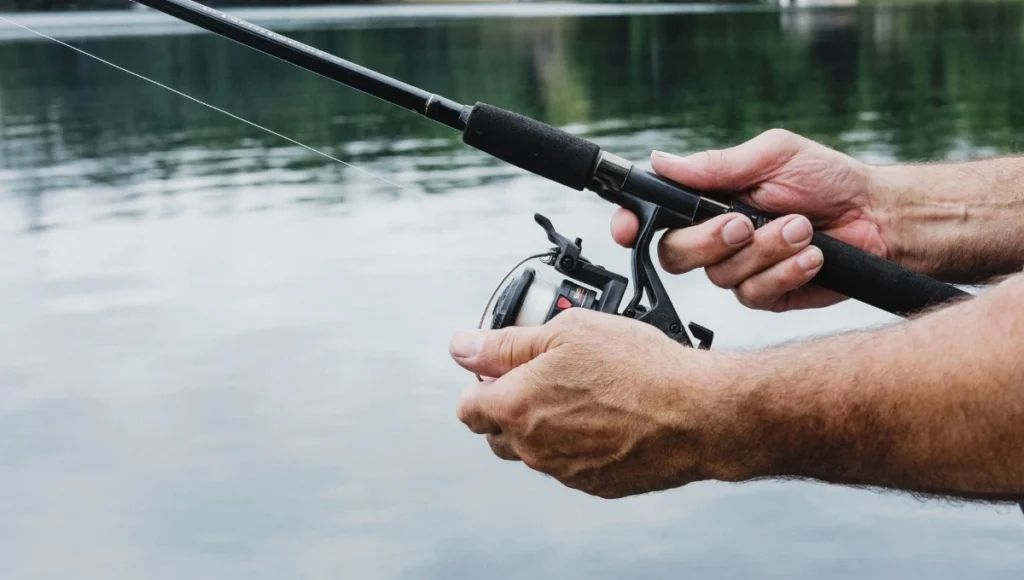
Now, let’s learn a simple fishing technique. Here’s how to do it:
- Set up your gear by attaching sinkers, a bobber, a hook, and bait to the line.
- Leave about 15 cm of line at the end of your fishing rod.
- Swing the line behind you, then forward overhead, like throwing a baseball.
- Once the hook is in the water, reel it in until there’s a slight bend at the rod tip.
- Hold the rod at a 45-degree angle or use a rod holder.
- When you feel a tug on the line, pull the rod firmly until it’s vertical to set the hook.
- Start reeling in the line, stopping when you feel tension, then repeating until you reel in the fish.
- If tension lessens, release some line and repeat until the fish is tired.
- When the fish stops resisting, reel it in all the way.
For new fishermen: fishing basics
When you’re in a survival situation, finding food is tough. You can go three weeks without food, but hunger can make survival hard way before that. When you’re hungry, your body starts using up stored fat for energy. But if you don’t eat, it starts breaking down muscle and tissue, which can make you feel weak, dizzy, and confused.
Finding food isn’t just about getting anything to eat. It would be best if you had the right stuff to keep you going, like fats and protein. Fishing can be a great way to get those nutrients. But fishing isn’t just about dropping a line in the water. It takes knowledge and the right gear. Different equipment has its pros and cons, so you need to choose wisely.
An overview of equipment types
Let’s talk about different types of fishing equipment:
- Spinning Rod and Reel: This setup involves a long rod and a spinning reel. You cast your line by whipping it back and forth. It’s versatile for fishing from shore, boat, or while moving. Just be careful not to get tangled in bushes behind you.
- Baitcasting Reels: These reels are associated with various rod types. You hold the line with your finger while casting. They can be a bit tricky to untangle if the line gets twisted.
- Spincast Reels: These reels come with different rod lengths and have a cover. The reel is on top of the rod, but it’s still parallel. You release the line by pressing a button on the reel when casting. They’re easier to learn to use.
- Baitcasting Reels: Each type of baitcasting reel is unique. The reels are perpendicular to the rod, and you release the line by pressing a button. It’s important to remove any backlash by adjusting the reel properly.
Tips to Catch More Fish
Here are some simple tips to catch more fish:
Frequently Asked Questions
Conclusion
Fishing is a rewarding and enjoyable activity for beginners to explore. By understanding the basics of fishing equipment, techniques, timing, and location, beginners can increase their chances of success. Patience, practice and a willingness to learn are key to improving fishing skills over time.
Remember to respect the environment, follow safety precautions, and practice conservation to ensure the sustainability of fish populations and habitats. Whether fishing for food, sport, or relaxation, beginners can embark on a fulfilling journey into the world of fishing and create lasting memories in nature.
